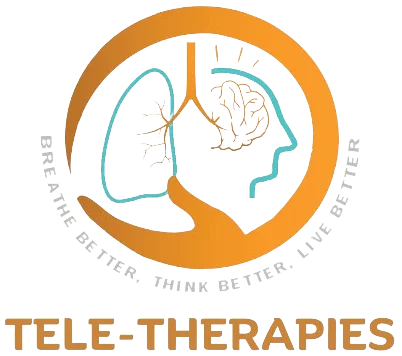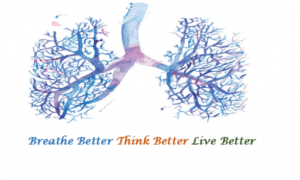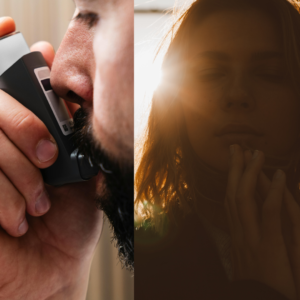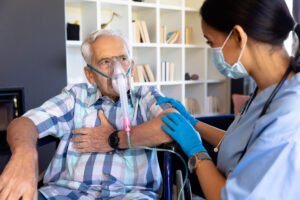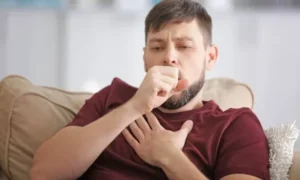Reflecting on 20 years of my journey as a physiotherapist and psychotherapist specialising in pulmonary rehabilitation, I had this long inner conflict, why in community settings, terms “Respiratory” or “Pulmonary” rehabilitation been alienated or considered a service that needs to be attended as a last priority. With this quest, my search ended with a feeling of frustrations due to many perceived challenges:
A. The models of healthcare delivery,
B. The undefined curriculum for pulmonary rehabilitation for healthcare professionals (medical/ Allied health) in their under/post-graduate training.
C. The misconceptions ingrained in patients with chronic lung disease regarding pulmonary rehabilitation or mental health.
The establishment of “LUNG REHAB VOYAGE” was driven by the ambition to unveil the value of pulmonary rehabilitation and mental health service delivery in community care settings, closer to patients’ homes, respecting patients “needs” over the “wants”.
International and National respiratory care Societies already have made considerable efforts in health promotional activities around chronic lung disease. Yet, we are nonetheless aware that we need enormous human and financial resources to suffice the unmet equity needs of pulmonary rehabilitation worldwide. Therefore, the task of LUNG REHAB VOYAGE has been charged: to support HEALTH PROMOTION ON REAL VALUE OF PULMONARY REHABILITATION IN PRIMARY AND COMMUNITY CARE SETTINGS.
Upholding my professional accountability and honour, I have committed to do this mini-tour about pulmonary rehabilitation for my beloved people with chronic lung diseases struggling to know what is real “Pulmonary Rehabilitation”. Are you ready?
The Goals of Pulmonary Rehabilitation
A well-designed pulmonary rehabilitation promises to
1. Lower your symptoms of breathlessness.
2. Improves your lung endurance and overall functional capacity.
3. Improves your self-efficacy and knowledge on tools to manage lung disease.
4. Improves your mental health and outlook on lifestyle management.
Let’s break the myths of Pulmonary Rehabilitation
Myth 1- Pulmonary rehabilitation is an exercise programme
For more than two decades, Pulmonary Rehabilitation has been endorsed as a “Gold standard” for integrated care management of chronic lung disease. Integrated care means and includes a “TRIPLE THERAPY”-Supervised Exercise, Mental Health and Self- Management Education program that should be designed to address and heal some breathing disorder or dysfunctions to add or improve your quality of living. Support Group and health care follow-up consultation needs to be ritualistic practice behaviour of any health care provider to make a meaningful difference in peoples lives.
Myth 2- Pulmonary rehabilitation is only prescribed for chronic obstructive lung disease
Strong evidence confirms pulmonary rehab (PR) benefits patients with COPD, Lung Cancer, Lung volume reduction, Asthma, Pulmonary Hypertension, and less evidence speaks of the value of PR for restrictive lung diseases such as interstitial lung disease, Scoliosis, Systemic lupus erythematosus and other similar chronic lung diseases. Therefore, there needs to be a climate shift in healthcare marketing to weigh the value of pulmonary rehabilitation over inhalers and oxygen therapy in most minor cases required of lung disease.
Myth 3- Pulmonary rehabilitation is only for those above the ages of 60 years or older
People with chronic lung disease are in diverse ages ranges between 35’s — 90’s and are ideal candidates for pulmonary rehab in various primary and community care settings. In addition, for decades, smokers and non-smokers have been victims of chronic lung disease and cherished the benefits of well-designed pulmonary rehabilitation programmes. So, it’s vital the health promotion needs to be targeted with the critical message “Young and Healthy Ageing”.
Myth 4- Pulmonary Rehabilitation is only for six weeks programme
Usually, the programme demands the patient and their family to commit six or eight weeks of rehabilitation journey depending on the severity of your chronic lung conditions and preferences. But, in the real world, most places have modelled six weeks of pulmonary rehabilitation due to the challenges of resources allocated by the National Health Services. As a result, there is a persisting disillusion, “lack of motivation” for those “non -runners” who sign up for the programme but don’t reach the goal post.
“Commitment is not a word, but it’s an action.”
Research evidence confirms that mental health therapy is grounded in SMART integrated care for chronic lung diseases.
Myth 5- Pulmonary Rehabilitation needs a prescription from my GP or consultant or Nurse or Allied Health care Professionals
Ideally and ethically, your respiratory health care professional (medical/AHP) should refer/prescribe a pulmonary rehabilitation programme to confirm the diagnosis of your lung’s disease at an early stage. However, the GOOD NEWS is PR is a non-medical drug not sold in any pharmacy and requires no formal prescription for its triple therapy-Supervised Exercise, Mental Health and Self- Management Education program.
Connection Between Lung Disease, Mental Health, and Pulmonary Rehab
When you live with prolonged lung disease, you might notice degradation in your mental health as an added consequence and challenge for healing and managing your condition.
You will find yourself spending more time at home, cannot talk much with people and do things you love to do in the past gives you a sense of “Suffocation” and “Disability”. In addition, the idea of getting support from others so early in life creates a sense of anxiety in your mind.
All those suffocations are expressed as angry, low, and hopeless. And these emotions lead to depression, and the body might give up while recovering. In addition, the aftermath of COVID-19 has increased the demand for mental health therapy and validation of pulmonary rehab in the community and primary care. Yet, the depressing issues and pressing needs are gaps in education among primary and community healthcare professionals.
Don’t lose hope. Trust me; Pulmonary Rehab is an ideal program to overcome your condition. At Lung Rehab Voyage, we understand you, and we tailor integrated respiratory rehabilitation, counselling and psychotherapy sessions that suit your disease condition.
Expectations that One Must Have After Signing Up for Pulmonary Rehabilitation
Most individuals have questions about how Pulmonary Rehabilitation will affect their bodies. Some are pretty scared, while some are trusting the myths spreading over modern information technology. But, in reality, it is common for any health disorders to hijack our limbic and cognitive control circuitry, triggering an emotional outburst of anxiety, self-doubt or abandonment. So, you are not different or alone. Hence, any pulmonary rehab program should incorporate mental health therapy to enrich an individual’s mental & emotional health.
Your initial assessment is crucial as it gives the foundation to understand your respiratory and mental health severity. There are some pulmonary function tests, walking tests alongside your verbal and physical expression of symptoms. In addition, some people might need to undergo a stress test.
In the following steps, the central part of the program will start. For example, education on essential aspects, exercise to target lungs and mental health, psychosocial measures to help you deal with your chronic condition emotionally & mentally, and finally, the nutrition you need to consume.
Conclusion
Insum, pulmonary rehabilitation triple therapy includes a “Supervised Exercise, Mental Health and Self- Management Education program”. Pulmonary rehabilitation should be prescribed or demanded as a single drug in the early stages of your chronic lung condition to prevent loss of number days in your life span to make a meaningful change in patient lives. I want to put out a call to all chronic lung disease survivors. There is a pressing need to take your accountability to reach out to your local funded or private pulmonary rehabilitation care centres to save your lungs at the earliest and improve your quality of life.
